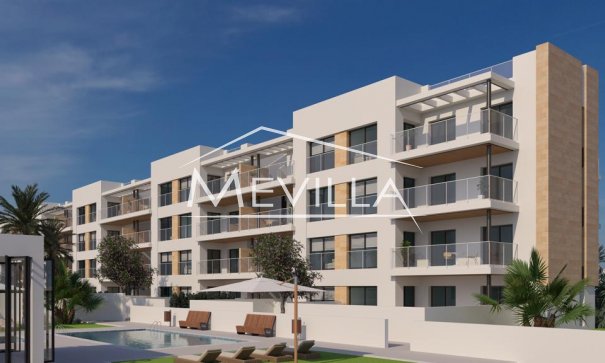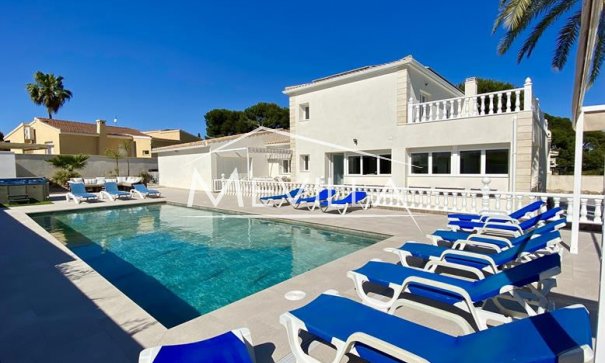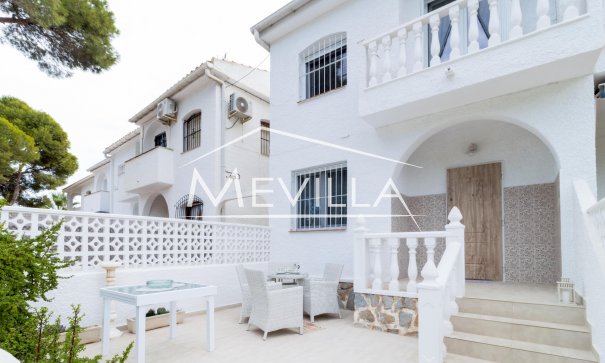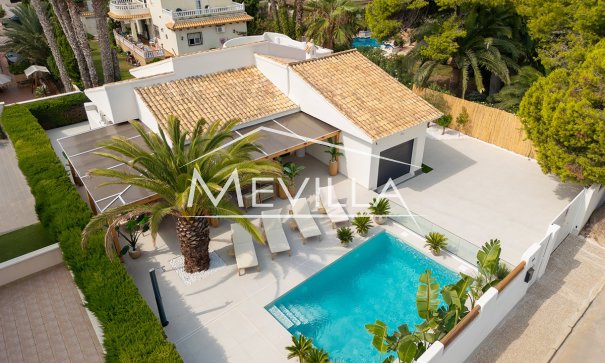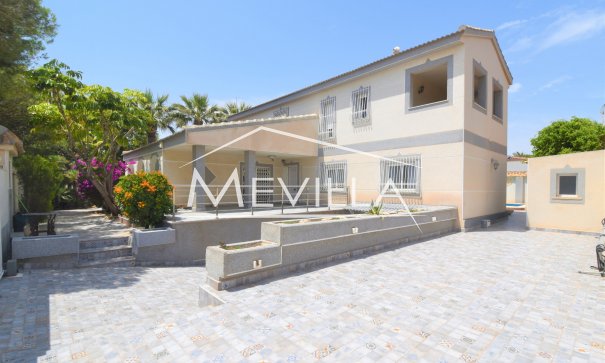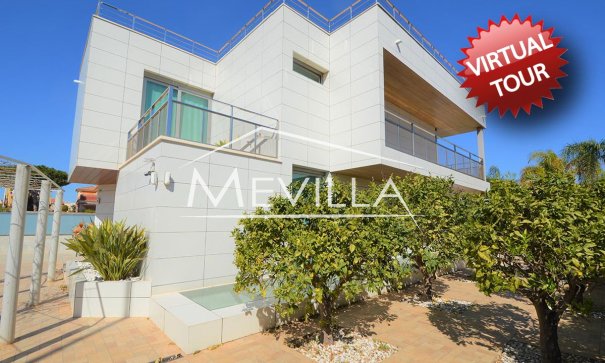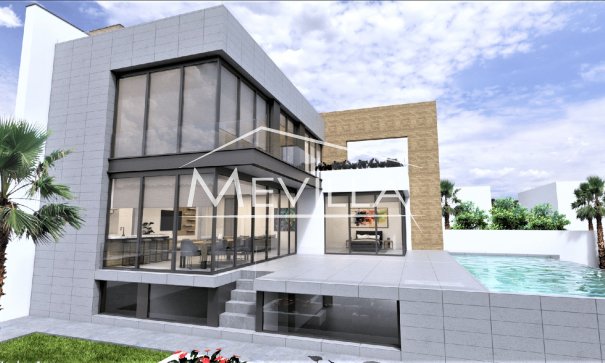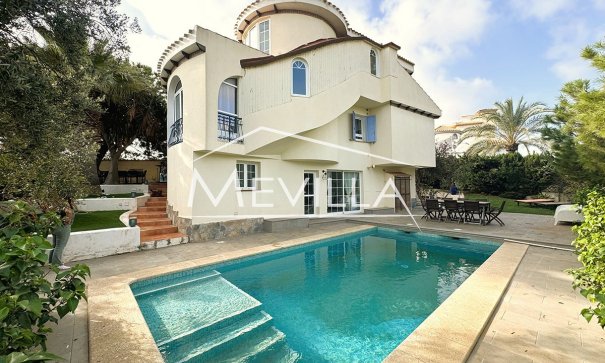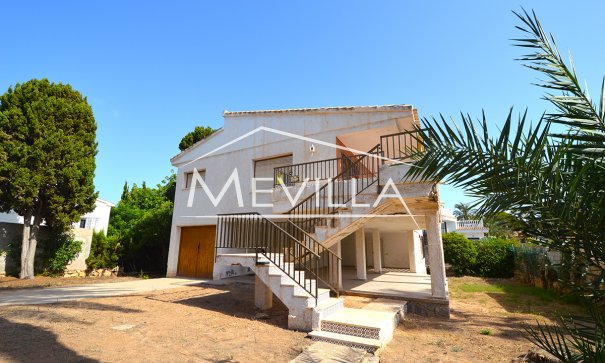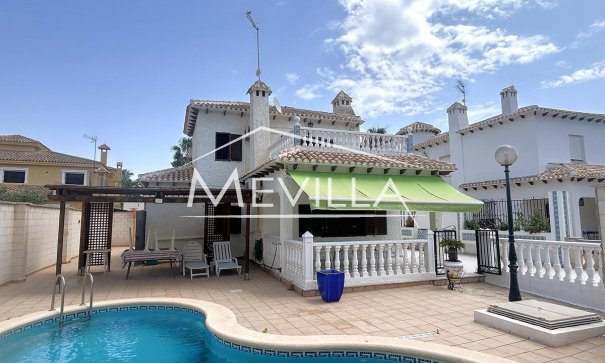taxes and fees for any property buyer in spain to keep in mind
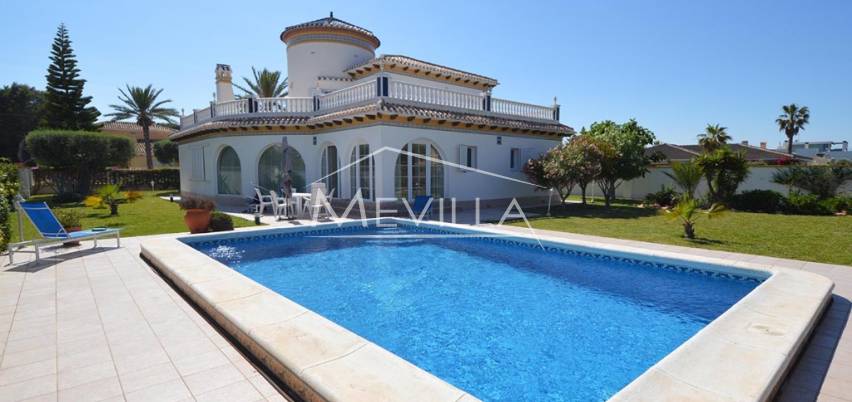
HOW MUCH IT COST TO BUY, OWN AND SELL A PROPERTY ON THE COSTA BLANCA AND THE COSTA CALIDA IN SPAIN.
Property tax in Spain is lower than the European average, but there are still a number of taxes and fees that you should be aware of when buying or selling a property in Spain.
There are several annual taxes and fees to consider when thinking about the cost of owning a home in Spain. The tax implications of buying or selling your property in Spain vary depending on your residence status (Resident or Non-Resident in Spain) and the community and town hall where your property is located.
In this article, we help you understand the costs of buying, owning and selling a property in several of the sunniest regions of Spain, such as the Valencian Community, the Costa Blanca and the Costa Cálida (Region of Murcia).

CR105 - First line villa in Cabo Roig. View listing
The property tax in Spain is lower than Europe’s average, but still there is a number of taxes and fees you should know about when buying or selling a property in Spain.
There are several annual taxes and fees to take into consideration when you think about the cost of owning a house in Spain. Tax implications for buying or selling your property in Spain varies depending upon your residency status (Resident or Non Resident in Spain) and the community and townhall where your property is located.
In this article, we help you understand the costs of purchasing, owning and selling a property in one of the sunniest regions i Spain which Valencian Community or Costa Blanca and Costa Calida (Region of Murcia)

CR124 - Frontline villa in Cabo Roig for sale. View listing
Please read on to get the complete information on property taxes and fees in Spains Costa Blanca and Costa Calida.
What taxes and fees to pay in Spain when buying real estate
In general there are no restrictions for foreigners to purchase any kind or property in Spain. Buyers from Non EU Countries except Norway, Iceland and Switzerland might need to get a so called military certificate to buy in certain areas and not all properties in these areas are affected by this rule. The laws dates back from 1978 and seems obsolete in todays time, but it is still current. We at Mevilla will help you to apply for it quickly and hassle free.
The two existing taxes to purchase a property in Spain are either VAT (Value Added tax) which is payable for new built properties purchased from a developer or the ITP (Property Transfer Tax) which is payable for resale properties. Whilst the VAT as a state tax is 10% in the whole of Spain, the tax for resale properties is fixed by each community independently and is 10% in the Valencian Community (Costa Blanca) and 8% in the Region of Murcia or Costa Calida.
So buying a resale property in Mil Palmeras will cost you 2% more in taxes than just 6 km further south where you will pay a 8% tax when buying a resale property in San Pedro del Pinatar.

Luxury Villa Mil Palmeras, Costa Calida: View listing
Purchase tax for resale properties in Spain by region:
- Asturias, Catalonia, Valencia and Costa Blanca, Galicia: 10.1%
- Extremadura: 9.9%
- Castilla y Leon: 9.6%
- Cantabria: 9.5%
- Balearic Islands (Mallorca, Menorca, Ibiza): 9.2% average
- Andalucia (Marbella, Malage etc): 9.1% average
- Murcia Costa Calida and Castilla la Mancha: 8.1%
- Aragon, La Rioja, Pais Vasco: 7.1%
- Canary Islands: 6.6%
- Madrid, Navarra: 6.1%
- Alava: 4.1%
- Ceuta, Melilla: 3.1%
Further costs when buying a property in Spain are notary and land registry fees which are suually paid by the buyer and are based on the same public rules over the whole country.
Notary fees: aprox. 1.000 - 2.000 EUR depending on the value of the property and the complexity of the title deed.
Land registry fees: aprox. 800 - 2.000 EUR depending again on the value opf the property
When buying with a mortgage you have to pay an extra title deed to the notary as you will sing one document for the purchase and a second one for the mortgage at the notary. Same applies to the land registry. You will have to pay for registering the owner ship in your name but as well the mortgage on the property in your name at the land registry.
Until 2019 a stamp duty tax called AJD had to be paid by the buyer taking out a mortgage. It was 1-2% of the mortgage amount this practice but got deemed illegal obliging the banks to pay this tax. In the end we see now that the interest rates banks are lending funds for are higher then before. So in the end you pay anyway. Of course Mevilla will help you to get finance at the best possible rate with the best banks here in Spain.

CR784 - A luxury villa with stuning sea views in Cabo Roig. View listing
Annual costs and taxes for real estate in Spain
When owning a property you must pay two taxes each year:
IBI or SUMA: Impuestos de Bienes Inmubeles is the Council Tax and the height of it again is based on the catastral value of the property. The catastral value is based on the the size of the plot and the land you own and is fixed by each townhall. Orihuela Costa for example has much lower tax then Torrevieja or Pilar de la Horadada, the two neighbouring townhalls. SUMA as it is often called is just the public place where you pay the IBI tax, as it is the place where you pay local parking tickets and your car tax.
Luckily the catastral values are far lower then the real market values of the properties.
Personal income tax: If you are fiscal resident in Spain you must pay your taxes and make a tax declaration each year. Should you rent a property you will have to pay 19% of the income as tax. As a Non Resident you have to pay 24% of the rental income as a tax as well by a "voluntary" tax declaration which should be done within one month after receiving the rent. You can deduct costs such as cleaning, pool maintenance, service contracts, water and electricity during the period your proeprty is rented.
Even if you do not rent your property a Non Resident should make a yearly tax declaration and pay about 0,4 % of the catastral value. Now many clients we have seen who never did know about this and never did any tax declarations and nothing happened. Only if you sell your property
In addition to these two taxes, there is a wealth tax on properties with market values exceeding €700,000. The general rule (applied to all non-residents) is the taxation of 0.2%-2.5% depending upon the value of the assets. But Spanish residents may be entitled to individual deductions depending upon the region where their properties are located.
Tax implications after selling property in Spain
If you decide to sell your house, you’ll pay a capital gains tax on your gains from the sale. You can deduct costs for buying and selling such as any purchase taxes, notary and legale fees. As well you can deduct costs for selling. The rate is 19% for EU citizens and 24% for non-EU citizens.
Another tax to bear in mind is Plusvalue tax. This tax is based on the increase of the catastral value of the plot on which you own. We can calculate your taxes quickly and easily if you like.



















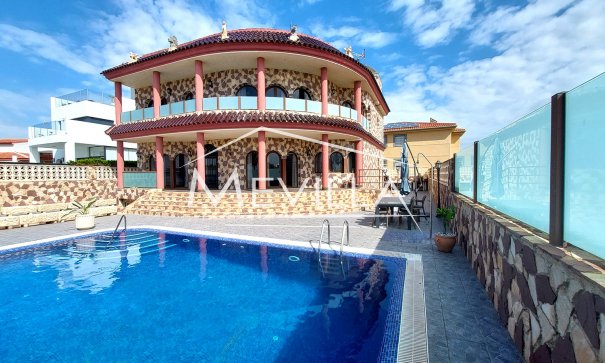
 Orihuela Costa · La Zenia
Orihuela Costa · La Zenia






